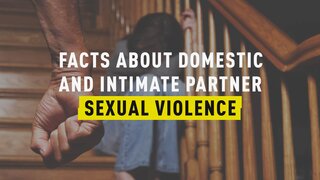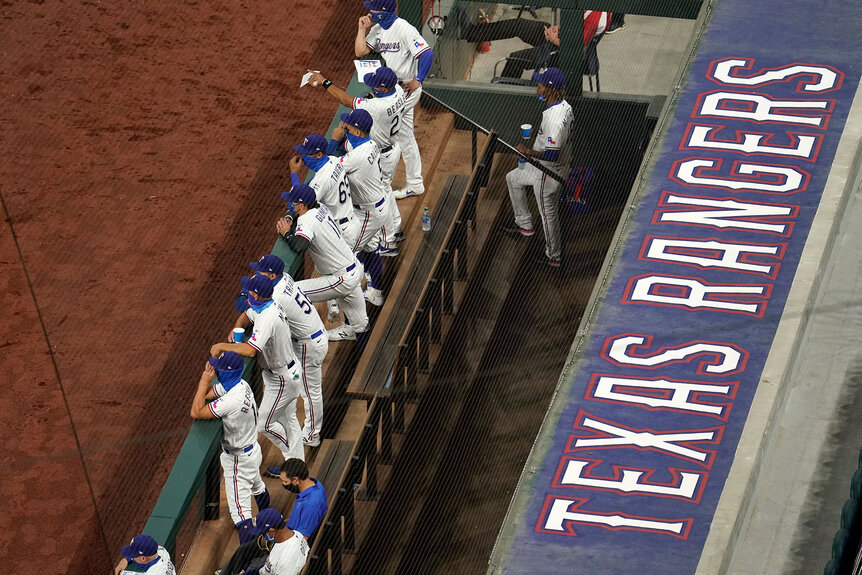Create a free profile to get unlimited access to exclusive videos, breaking news, sweepstakes, and more!
‘I Blamed Myself:’ Former Sports Reporter Says She Was Raped By MLB Player 18 Years Ago
"I didn’t say it out loud to myself, write it down, speak his name or allow myself to think about it beyond wishing hard that it would not have happened," Kat O’Brien wrote in a New York Times essay.

Kat O’Brien was a young sports reporter working for the Fort Worth Star-Telegram in 2002 when she had the opportunity to work on a significant story for the paper, chronicling how foreign-born Major League Baseball players navigated life away from home, immersed in American culture.
While reporting on the piece, she arranged an interview with a pro ballplayer who was in town as his team took on the Texas Rangers. The interview took place at the visiting club’s team hotel. For the 22-year-old O’Brien, recently out of college and covering mostly high school sports, it represented a major professional opportunity. But what happened in that room would weigh on her for decades to come.
O’Brien, as she writes in a New York Times essay, was raped.
She had begun conducting her interview when the player tried kissing her, she recounted.
“I said, no, no, I don’t want that, but he pushed me over to the bed. I tried to shove him. I said, ‘no, stop, no, stop,’ over and over. He pushed further, getting on top of me, pulling off my skirt, and having sex with me against my will.”
She said she later fled the hotel in a panic.
“Afterward, I remember getting in my car, shaking, to drive home, and looking at my blue-and-white skirt from Express, and thinking why did I have to be wearing a skirt?” O’Brien said. "Because it was Texas in summer.’’
After arriving home, O’Brien wrote that she downed a bottle of red wine in a “desperate attempt” to “numb her sadness and rage.”
“Instead,” she added, “I threw up all over the carpet.’’
And then she just kept it bottled up.
"I didn’t tell my best friend, my sister, my mother or my sports editor, who was a woman. For 18 years, I didn’t tell anyone," she wrote.
"I didn’t say it out loud to myself, write it down, speak his name or allow myself to think about it beyond wishing hard that it would not have happened. I spent years willing it to unhappen. Magical thinking became my truth."
O’Brien rationalized that as a young woman with "no track record" her experience would have been dismissed.
“So I blamed myself. I must have been too nice, too trusting, too friendly and open. Even though I said no, it must have been a misunderstanding. I lived in fear the story would get out.”
That changed earlier this year when New York Mets general manager Jared Porter confessed to sending sexually explicit images to a woman sports writer when he was with the Chicago Cubs. He was later fired by the Mets. Separately, Los Angeles Angels pitching coach Mickey Callaway was also busted in February for sending lewd text messages to at least five female reporters.
These revelations, O'Brien said, inspired her come forward.
“As I read accounts of other women’s experiences with sexual harassment, the full force of my own assault hit me,” she wrote. “And with it came the relief that I actually hadn’t invited it, hadn’t done anything wrong at all, something I had never once considered.”
Britt Ghiroli, currently a columnist for the Athletic, revealed her own story of a sexual misconduct earlier in the year that bore some similarities to O'Brien's experience. While covering the Baltimore Orioles for MLB.com, Ghiroli said that a player invited her to his hotel room, saying he had a news tip to share. The unidentified man then made unwanted advances.
“I walked in to candles lit and Drake playing,” Ghiroli wrote. “My stomach lurched as he came at me, trying to kiss me. I pushed him away and blurted out the only thing I could think of: What on earth would give him the idea that I was into him? I’ll never forget the answer: ‘Because you were nice to me.’”
She added, underscoring the challenges facing women working in the sport world, that “every woman has a story, most of us have multiple stories, and all any of us truly want is to not stand out and constantly discuss how hard it is to be in this space."
O'Brien, who said she hasn’t worked as a sports writer in more than a decade, explained that she decided not to name the player who raped her "because it would only open me up to the possibility of having dirt thrown on my reputation. Even all these years later and in the wake of the #MeToo movement, a former professional athlete wields considerable power. I hope I can help bring about systemic change rather than seek unlikely-to-come justice for one horrible act.”
“I hope that by sharing my experiences, more women will feel comfortable speaking up when something is inappropriate,” O’Brien added. “What I feared losing before — my job in sports journalism — is long gone. But I have found my voice.”
The Texas Rangers condemned the incident and denied "any knowledge" of it at the time.
"This did not involve a Texas Rangers player," John Blake, a spokesperson for the Texas Rangers, told Oxygen.com. "It’s horrible. Kathleen — I know her very well — she’s very courageous to go public. We certainly have no tolerance for that type of behavior."
It's unclear if the Major League Baseball will conduct an independent investigation into O'Brien's allegations. A representative for the league didn't immediately respond to Oxygen.com's questions on Monday.















